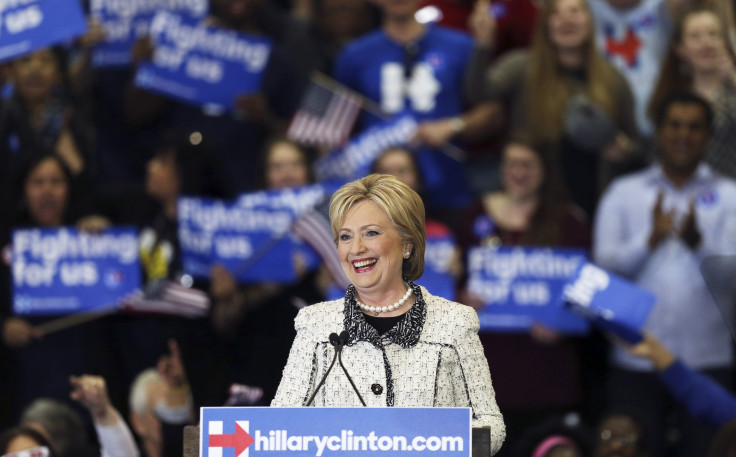Trump, Clinton Dominate Facebook Conversation On Super Tuesday In All States Except One

Donald Trump is still leading the pack on social media's election conversation — but that's to expected. What's more surprising is in the heated race between the Democratic contenders, former Secretary of State Hillary Clinton is overtaking Vermont Sen. Bernie Sanders in nearly every state.
With 81.56 million people in the U.S. talking about the presidential candidate on Facebook during the month ahead of Super Tuesday, Trump garnered 42 percent of the conversation. At the national level, the Republican front-runner was followed by Clinton at 25 percent. But in state-by-state numbers released Tuesday by Facebook, Trump led all conversation in 11 of 12 Super Tuesday states.
Sanders led the conversation on Facebook in his home state, Vermont. Even so, he garnered only 30 percent in Vermont with Trump at 28 percent and Clinton at 24 percent.
In the past primary elections, Clinton has won three of the four states: Iowa, Nevada and South Carolina. Sanders overtook Clinton in New Hampshire.
Trump and Clinton also pulled in the most interactions in the Facebook community, meaning the highest number of likes, comments, posts and shares. Trump had 197.12 million interactions, while Clinton had 123.32 million interactions over the last month.
While Clinton and Sanders are fairly even in the percentage of conversation when broken out by state, Trump far outreaches every other candidate in the Republican Party. He is followed by Texas Sen. Ted Cruz and Florida Sen. Marco Rubio. Ohio Gov. John Kasich failed to attract more than 3 percent of the conversation in any state.
Trump has won three out of four primaries: New Hampshire, South Carolina and Nevada. Cruz came out on top in Iowa.
The top five issues discussed on Facebook on a national level are, in order, Christianity, the economy and jobs, racism and discrimination and, finally, immigration and taxes. Another highly engaged issue is Wall Street and financial regulation, which dominated talk in Colorado, Massachusetts, Minnesota and Vermont, according to Facebook's data.
Trump is even more dominant on Twitter. Twitter is not breaking down conversation by state, but overall Trump and Clinton lead their respective parties. Trump is dominant on Twitter, while Clinton narrowly edges Sanders in number of mentions in tweets.
Beyond Trump, Rubio has pulled ahead of Cruz over the past two weeks with 2.3 million tweets versus 2 million mentions in tweets. In comparison, Trump was mentioned 9.3 million times on Twitter while Clinton garnered 3 million tweets.
There's no evidence social media can predict a presidential election. Indeed, a recent study concluded that Twitter data is not accurate for predicting an election. The Social Science Computer Review studied Twitter data of the 2013 German federal election and found that it more accurately measured level of interest than the support.
Twitter disputed comparing that study to the current presidential race, however. Nick Pacilio , the communication lead for Twitter's government and news department, said, "I'd advise passing the next time someone sends along German Twitter data from three years ago in the context of the 2016 U.S. election," according to Reuters.
However, Twitter data has been reflective of primary results, at times. For example, Twitter data narrowing on tweets in Iowa showed an increase in the volume of conversation about Cruz in the week prior to the primary, Time reported. Cruz ended up overtaking Trump.
© Copyright IBTimes 2024. All rights reserved.






















